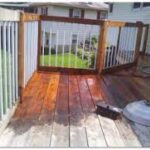The last thing you want is for your heating system to malfunction as winter approaches and the temperature drops. Regrettably, malfunctioning heating systems can leave you cold during the most inconvenient times. In this blog, we’ll discuss how to handle emergency heating repairs and how to keep warm while you wait for the experts to diagnose and repair your system.
The Horror of a Heating System Failure
It can be unsettling and stressful to have a heating system breakdown, particularly in the winter. To guarantee your safety and comfort while you wait for repairs, you must, nevertheless, maintain your composure and take the appropriate actions.
Step 1: Check the Thermostat
Check your thermostat before you lose your cool. Sometimes all that’s needed to solve the problem is a dead battery or the wrong settings. To troubleshoot a malfunctioning thermostat, either swap out the batteries or refer to the user manual.
Step 2: Prioritize Safety
Your safety is the first priority if your heating system isn’t working properly. The following safety measures should be followed:
- Switch Off the System: In order to stop additional damage or potential dangers, turn off the system right away if you detect any strange sounds, smells, or malfunctions.
- Check for Gas Leaks: If your home smells like gas and you have a gas heating system, get out of there quickly and call the gas company or emergency services. Gas leaks can pose a serious threat.
- Install Carbon Monoxide Detectors: Make sure that your home is equipped with a functioning carbon monoxide detector, particularly if you have a gas heating system. Despite having no color or smell, carbon monoxide can be fatal.
Step 3: Request Expert Repairs
When you’ve made sure you’re safe, it’s time to get your heating system inspected and repaired by a heating repair Hendersonville specialist. This could take some time, especially during the busiest heating season, depending on the severity of the problem and the technicians’ availability. Here’s how to stay warm while you wait for the experts to arrive:
How to Stay Warm When Emergency Heating Repairs Are Being Done
1. Layer Up
To retain heat near your body, dress in several layers. Warm coats should come last, followed by insulating layers like fleece or sweaters and thermal or moisture-wicking base layers. Remember to cover your extremities with a hat and thermal socks to stay warm.
2. Employ Throws and Blankets
If you are sitting or lying down, cover yourself with throws or blankets. Additional warmth and comfort can be obtained with electric blankets or heated throws.
3. Continue to Move
Try to stay active by performing light exercise or household chores as physical activity produces heat. Being active will keep you warm.
4. Seal Off Unused Spaces
To keep the heat concentrated in the spaces you are using, close off any rooms you aren’t using. Use draft stoppers and close the doors to keep cold air from entering.
5. Make Safe Use of Space Heaters
Use a portable space heater in this room if you have one, but use caution. Observe safety precautions, such as removing the heater’s plug when not in use, keeping it away from combustible objects, and never leaving it unsupervised.
6. Bake and Cook
Warming up your kitchen and adjacent rooms can be achieved by using your stovetop and oven. Not only does cooking or baking bring warmth to your living area, but they also provide comfort.
7. Sip Warm Liquids
Warm liquids such as tea, coffee, or hot chocolate can help you feel more comfortable and help your body temperature rise.
8. Conceal Drafts
To seal any gaps around windows and doors, use draft stoppers and weather stripping. This will assist in keeping chilly drafts out of your house.
9. Congregate in a Single Room
Get everyone in one room, whether they are family or roommates, so that you can all share body heat and stay warm.
10. Arrange a Different Type of Accommodation
Consider staying with friends or family, reserving a hotel room, or finding temporary housing until your heating is fixed if your system cannot be fixed right away. If it becomes too cold, don’t be afraid to seek shelter elsewhere; extreme cold can be dangerous, especially for those who are more susceptible.
Avoiding Heating Emergencies in the Future
Even though urgent heating repairs can be inconvenient, there are things you can do to lessen the possibility of a malfunction down the road:
1. Regular Maintenance: Arrange for yearly maintenance for your heating system to identify possible problems and take care of them before they worsen.
2. Replace Your Air Filters: Clogged filters can impede airflow and increase the stress on your heating system. To preserve efficiency, replace them on a frequent basis.
3. Invest in a Programmable Thermostat: These devices can help you efficiently control the temperature in your house and lessen system wear and tear.
4. Upgrade to a Newer System: Purchasing a newer, more energy-efficient heating system could end up being more economical in the long run if your current one is outdated and in constant need of repairs.
5. Install Carbon Monoxide Detectors: As previously stated, install carbon monoxide detectors to protect yourself if your home has a gas heating system.
6. Insulate Your Home: You can help your heating system maintain a comfortable temperature by reducing heat loss in your home through proper insulation and gap sealing.
7. Learn the Fundamentals: Become acquainted with the fundamental functioning of your heating system to enable you to recognize and resolve minor problems at an early stage.
In Summary
Although dealing with an emergency heating system breakdown can be difficult and uncomfortable, you can remain safe and warm until expert repairs are made if you take the appropriate precautions. Always put safety first, employ common sense when heating your home, and take precautions to avoid similar situations in the future by taking good care of your heating system and performing routine maintenance. Although winter can be harsh, you can weather the storm and remain comfortable in your home if you prepare properly, click here to learn more.




